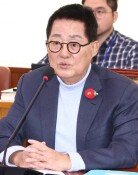Seoul Nat`l Univ. Flunked in Mid-term Evaluation of BK21
Seoul Nat`l Univ. Flunked in Mid-term Evaluation of BK21
Posted October. 18, 2002 22:48,
▽ Evaluation Results = Ministry of Education and Human Resources (MEHR) has conducted, along with Korea Research Foundation, an overall evaluation of BK21 and its 122 project groups based on their achievements for the past three years. Each of the project groups belongs to one of the 4 categories such as science and technology, humanities and social sciences, promotion of rural universities and special project. Upon completing the evaluation, the MEHR announced on Oct. 18th that it would disqualify 4 project groups, and cut down on the government grants by up to 25 % to another 76 groups.
For the past three years, 66.85 billion won (approximately $500 million) of taxpayers` money was poured into those groups, and additional 800 billion won is expected to be invested for the next 4 years to come.
The MEHR has disclosed that disappointing are the achievements of 4 project groups such as two project groups of Seoul National Univ., one of Soongshil Univ. and one group of Choongnam Univ. To these 4 groups, the MEHR will reduce the government grants by 20 % for the second semester of this year, and will stop giving any grants as of next year.
These groups have received the financial subsidies from the government an average of 993 hundred to 259 hundred million won a year, amounting to 6.8 billion for the past three years.
In addition, the MEHR has put on hold its determination on another Choongnam University`s group in the category of promotion of rural universities until the end of the fist semester of next year.
76 project groups including the category of science and technology, for which 90 billion won is supported annually, will have to watch the subsidies to them cut down by up to 25%. The budget for the groups ranking within bottom 20% will be transferred to those in the top 20%.
▽ Low Achievement of Seoul Nat`l Univ. = The 10 project groups belonging to Seoul Univ. including those in the category of system reform will receive 10-20% less grants. In the 9 sub-categories out of the total of 10, Seoul`s groups ranked at the bottom.
In addition to this, the headquarters of Seoul Univ. is evaluated to have not reformed its system satisfactorily, and the educational reform grant to it will be reduced by 50%, or 3.5 billion won.
It is said that Seoul Univ. has not kept its promises, calling for the disadvantage by itself. For example, it initially promised to decrease the number of its freshmen enrollment by 1,225. But it broke the promise.
Kim Sang-goo, chairman of the Council of Seoul University`s BK21 Project Groups, snapped, "The standards of evaluation used this time did not match with what the MEHR informed us at the beginning. That`s why we got disadvantaged."
Kim alleges, "According to the MEHR`s memorandum regarding the science and technology category, the mid-term evaluation would be made of the system reform efforts and the research achievements separately. But the MEHR mingled up the two criteria in evaluating and made determinations thereon."
▽ Contribution to Improvement of Research = The MEHR has come up with a self-evaluation of the BK21. It believes that, despite the problems that popped up in the process of enforcing BK21, it has contributed to enhancing universities` ability to conduct researches.
Facts support the self-determination. For example, prior to the commencement of the BK21, the scientific citation index was conducted 3,843 times a year. But, it has increased 48%, or 5,698 by the end of the third year of the BK21. The number of papers announced per each professor has increased from 2.74 to 3.72.
Therefore, experts point out, the MEHR, through a thorough auditing and inspection, should see to it that the huge budget is being spent where it is supposed to be. The MEHR, in order to foster the research-oriented atmosphere, focused its mid-term evaluation on the reform of the system, and will evaluate the achievements of the projects in its second evaluation in 2004.
inchul@donga.com







